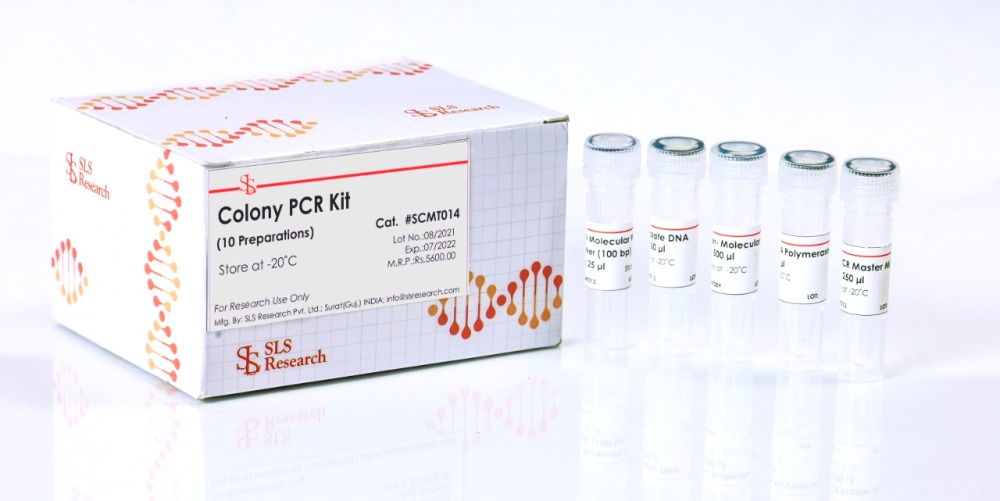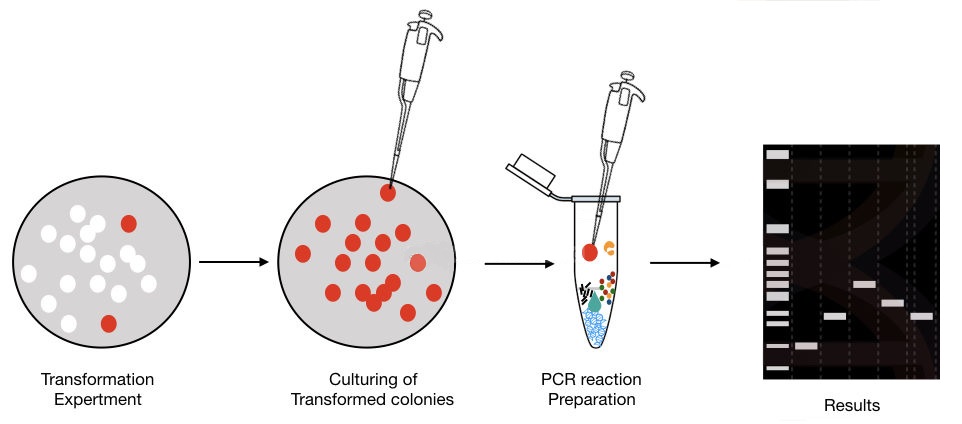Colony PCR Kit (Teaching Kit)
Colony PCR Kit (Teaching Kit)
Colony PCR is a rapid, high throughput PCR method to determine the presence or absence of the inserted DNA into plasmid directly from the bacterial colonies.
Colony PCR is a novel method in which by designing the insert specific primers, we can identify whether our DNA of interest is inserted into the plasmid or not.
Molecular cloning requires some method of screening colonies for the presence of an insert. Traditionally this has been done with restriction enzyme digest; however colony PCR can accomplish the same thing in less time and for less money.
The key steps to colony PCR are:
1) design primers to detect the presence of your insert;
2) set up a standard PCR reaction (primers, dNTPs, polymerase) using the supernatant of lysed bacteria as template; and
3) run your PCR product on a gel to analyze product size.
The first and perhaps most important step to colony PCR is designing primers. There are 3 strategies for primer design:
1) insert-specific primers,
2) backbone-specific primers, and
3) orientation-specific primers.
(for More details, go to Documentation section: “Strategies for Colony PCR”)
Kit Content
|
Materials Provided in Kit |
Storage upon Receipt |
|
2X PCR Master Mix Primers |
-20°C |
|
Taq DNA Polymerase |
-20°C |
|
Nuclease Free Water |
-20°C |
|
Gel Loading Dye |
-20°C |
|
DNA Marker(100 bp Ladder) |
-20°C |
|
Media Components (LA) |
RT |
|
Host Strain |
2-8?C |
|
Agarose |
RT |
|
10X TAE |
RT |
Storage Conditions and Product Stability
All solutions should be kept tightly sealed and stored at above define temperature. These reagents should remain stable for at least 1 year in their unopened containers.
| Items | Cat. # | Size |
|---|---|---|
| Colony PCR Kit (Teaching Kit) | SCMT014 | 10 Preps. |




